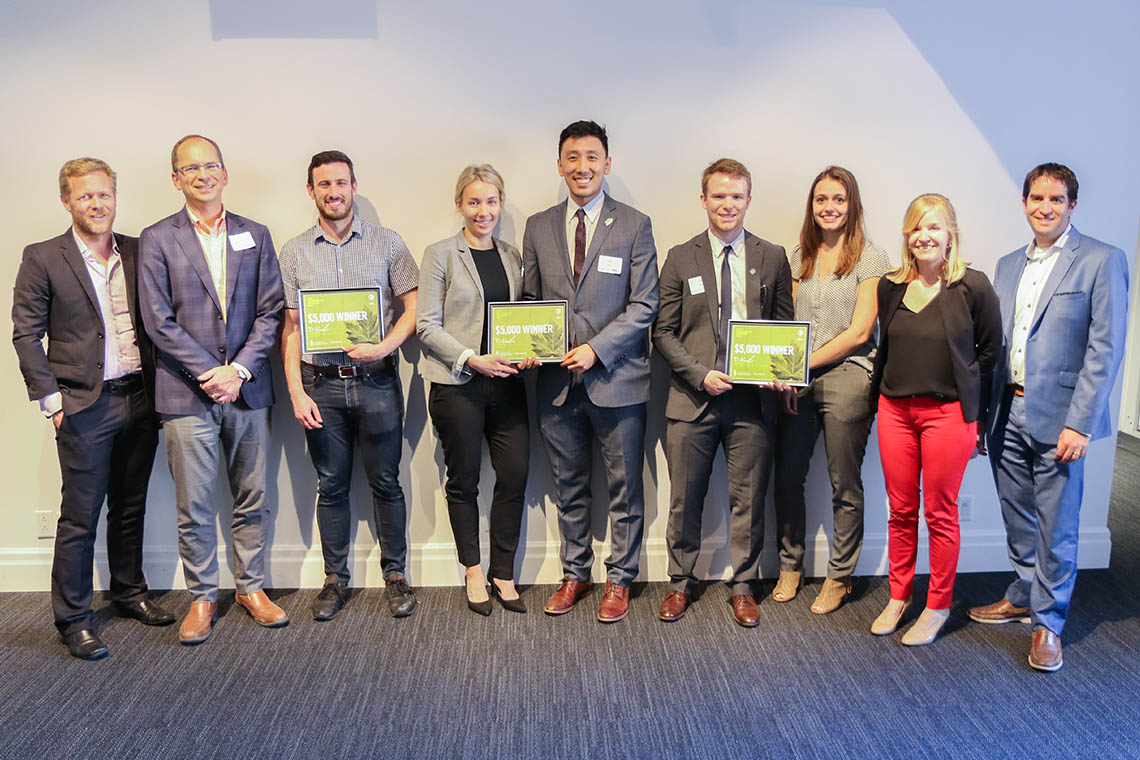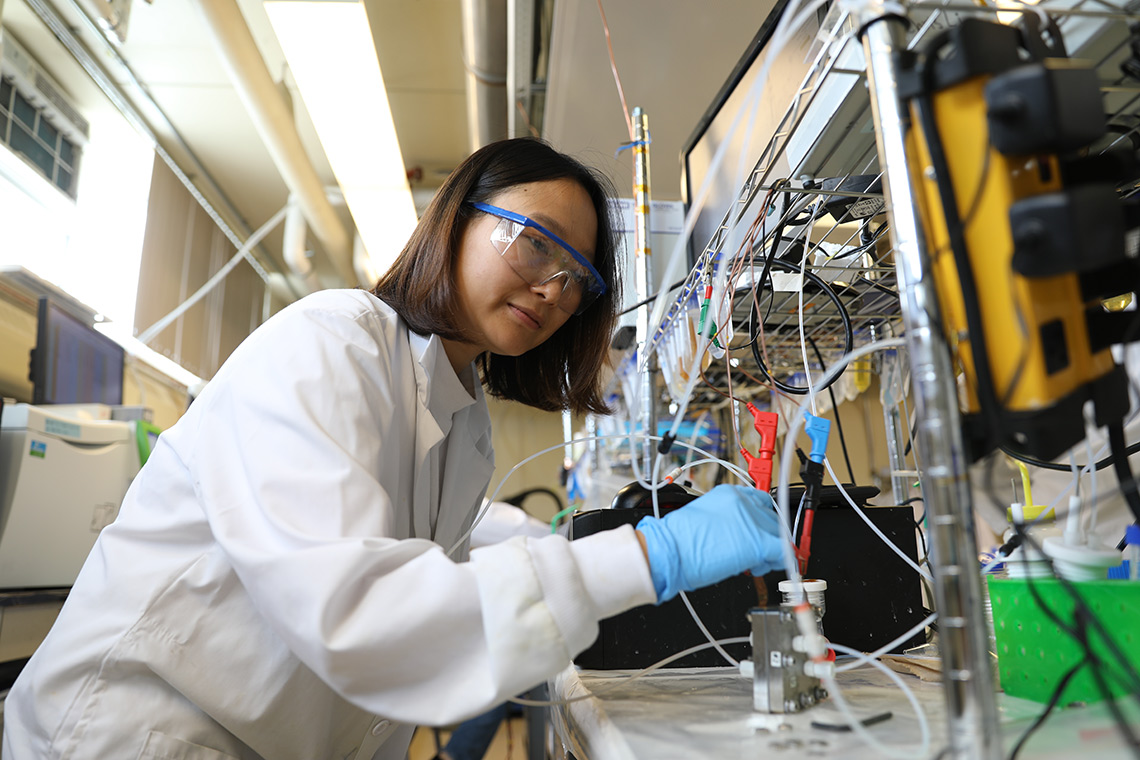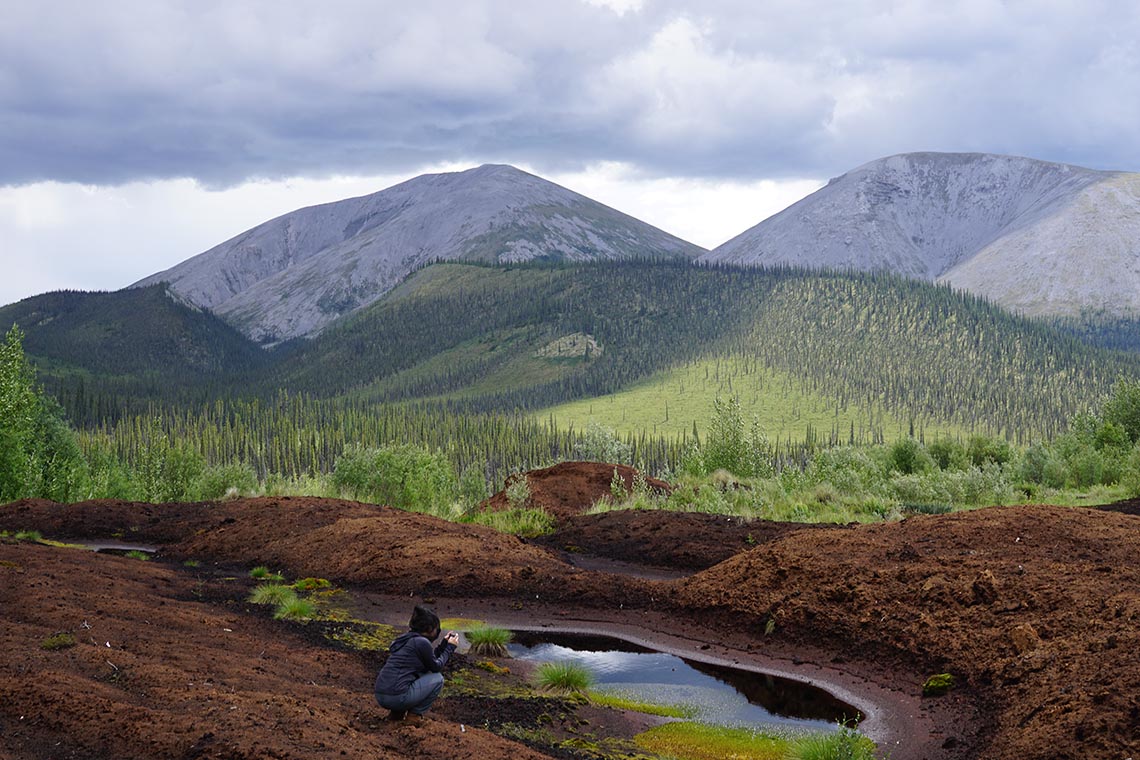Researcher

Three teams awarded U of T’s first-ever sustainability innovation prize
In front of a packed room of their peers, 10 groups of students recently had three minutes each to pitch a new sustainability-focused product or startup with the potential to make a signficant impact.
In the end, three were named winners of the first-ever University of Toronto Sustainability Innovation Prize, a $5,000 award created to recognize, reward and accelerate U of T’s most innovative sustainability ideas.

U of T researcher signs on to charter aimed at making Toronto ‘flood resilient’: Toronto Star
Fadi Masoud, an assistant professor of landscape architecture and urbanism at the John H. Daniels Faculty of Architecture, Landscape, and Design, has signed on to a landmark charter that will see representatives of municipal and provincial agencies work together to find ways to reduce urban flooding in Toronto.
Signatories to the Flood Resilient Toronto Charter – which include officials from Toronto Hydro, the Toronto Transit Commission, Conservation Ontario and the provincial environment ministry – will use cutting-edge data and collaborative projects to identify and protect city locations most vulnerable to flooding from storm water, the Toronto Star reported.

Out of thin air: U of T researchers shorten path to capturing and recycling CO2 with new process
A research team from the University of Toronto has developed a new electrochemical path to transform CO2 into valuable products such as jet fuel or plastics. The technology could significantly improve the economics of capturing and recycling carbon directly from the air.
“Today, it is technically possible to capture CO2 from air and, through a number of steps, convert it to commercial products,” says University Professor Ted Sargent, in the Edward S. Rogers department of electrical and computer engineering, who led the research team.

EaRTH-focused: U of T-Centennial College partnership to advance cleantech, build ‘vertical farm’
The University of Toronto Scarborough and Centennial College are teaming up to establish the EaRTH District – an initiative aimed at advancing the cleantech sector through research, academic programming and commercialization.
EaRTH, which stands for Environmental and Related Technologies Hub, will be a knowledge and training centre at U of T Scarborough focused on the development of clean technologies.
Among the partnership’s plans: apply innovative technologies to food production in an urban setting through the development of Canada’s first net-zero vertical farm.

Secrets of the permafrost: New U of T research reveals evidence of climate change in the Yukon
A new University of Toronto study confirms that recent climate warming in the central Yukon region has surpassed the warmest temperatures experienced in the previous 13,600 years, a finding that could have important implications in the context of current global warming trends.

Planning for climate change impact: U of T students roll out designs for a south Florida county
A group of architecture students at the University of Toronto tapped into their creativity, planning and design skills to reimagine new ways southern Florida can tackle climate change-related flooding, rising water levels and salt water entering canals and corroding existing infrastructure.
